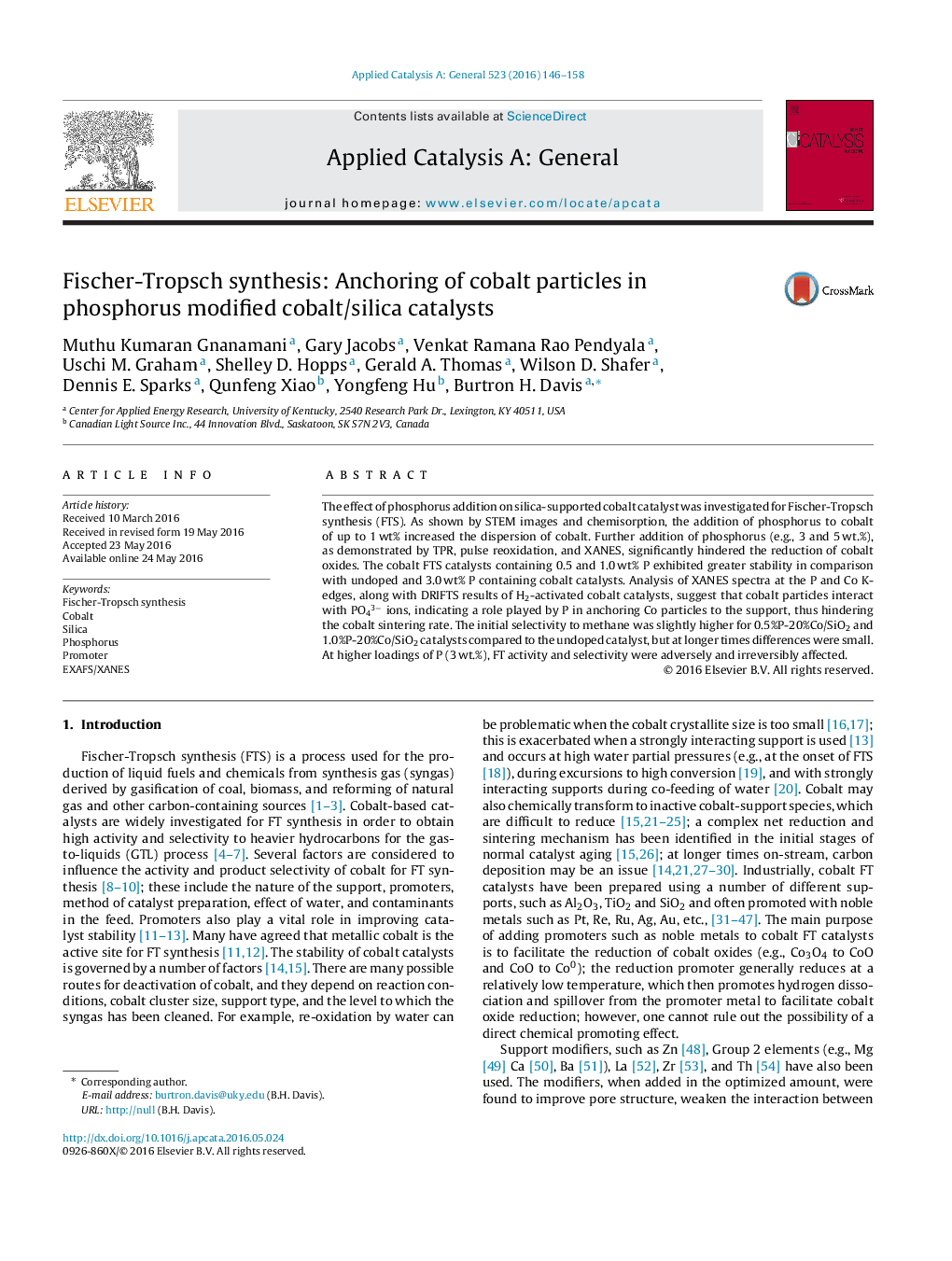| Article ID | Journal | Published Year | Pages | File Type |
|---|---|---|---|---|
| 38761 | Applied Catalysis A: General | 2016 | 13 Pages |
•Addition of phosphorus to Co/SiO2 up to 1 wt% improved FT activity and stability.•Higher P loadings on Co/SiO2 were found to hinder the reduction of Co3O4.•P anchors Co particles to the support and thus hindering Co sintering rate.•FT product selectivity did not change appreciably for 0.5 and 1.0 wt% P.
The effect of phosphorus addition on silica-supported cobalt catalyst was investigated for Fischer-Tropsch synthesis (FTS). As shown by STEM images and chemisorption, the addition of phosphorus to cobalt of up to 1 wt% increased the dispersion of cobalt. Further addition of phosphorus (e.g., 3 and 5 wt.%), as demonstrated by TPR, pulse reoxidation, and XANES, significantly hindered the reduction of cobalt oxides. The cobalt FTS catalysts containing 0.5 and 1.0 wt% P exhibited greater stability in comparison with undoped and 3.0 wt% P containing cobalt catalysts. Analysis of XANES spectra at the P and Co K-edges, along with DRIFTS results of H2-activated cobalt catalysts, suggest that cobalt particles interact with PO43− ions, indicating a role played by P in anchoring Co particles to the support, thus hindering the cobalt sintering rate. The initial selectivity to methane was slightly higher for 0.5%P-20%Co/SiO2 and 1.0%P-20%Co/SiO2 catalysts compared to the undoped catalyst, but at longer times differences were small. At higher loadings of P (3 wt.%), FT activity and selectivity were adversely and irreversibly affected.
Graphical abstractFigure optionsDownload full-size imageDownload high-quality image (89 K)Download as PowerPoint slide
